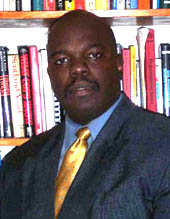 For
fraud to be successful, you need two co-operating parties, the
fraudster and the willing victim. This was brought to my attention
recently when we were called regarding money stolen from an
investment group. The amount lost was quite substantial, even though
the amount to be invested was small. It may appear to be impossible to
lose a lot of money with conservative investments; it is not
necessarily the case.
For
fraud to be successful, you need two co-operating parties, the
fraudster and the willing victim. This was brought to my attention
recently when we were called regarding money stolen from an
investment group. The amount lost was quite substantial, even though
the amount to be invested was small. It may appear to be impossible to
lose a lot of money with conservative investments; it is not
necessarily the case.
The
manager of the investment said he was outraged at the loss, and
insisted that he would oversee recovering the missing funds. Not a very
good idea considering that it is inappropriate to have someone who
might reasonably be suspected of causing the loss to be allowed to
conduct the investigation. If the potential suspect is a bad guy it
gives him a better chance of covering his tracks and getting away with
it. If he is innocent and the money is not recovered, it unnecessarily
leaves a suspicion that he might have been involved.
Like
Caesar’s wife, those investigating a possible criminal matter should be
above reproach, which is why, I recommend that new managers taking over
a new department where there was a suspicion of fraud turn the
investigation over to some from outside, unaffiliated, entity or
professional. In our case, the manager hired an investigator to help
with his investigation, who never the less still reported to the
division manager.
To make matters worse, the firm hired
had a newspaper article alleging participation in widespread financial
fraud in many countries. These allegations might or might not be true,
as I cannot confirm at this point never the less the issues questions
the creditability of the investigation process. From this we can arrive
the following 4 possibilities;
1. The worst-case possibility is that the manager is a fraudster and that the agent hired to help is a co-conspirator.
In this case the investors can kiss their money good-bye.
2. The manager is honest and the investigator is crooked.
In this case the recovery agent will make recovery difficult or impossible.
3. The manager is crooked and the recovery agent is honest.
In this case the manager will make recovery difficult or impossible.
4. The final possibility is that the manager has bad judgment but is honest, and that the investigator is honest.
Here we are left with the
appearance of
impropriety, but no direct and active hindrance from the combined
(manager/investigator) recovery team to the determination of whether
the funds had been lost or misappropriated, or to the possible
subsequent recovery of funds.
No
matter what scenario turns out to be the reality, we do know, beyond
the shadow of a doubt, is that when sums of money equivalent to the
Gross National Product of a small country have disappeared, the
appearance of correctness is vitally important especially if the money
is never recovered. Why then would senior management or executives
allow, this seems sufficiently obvious that one must ask why a group of
investors able to collectively cough up this large an amount of money
would let someone who should be considered a suspect manage the
recovery of their missing funds?
The best explanation for this irregular behavior turns out to be
Cognitive Dissonance Theory
developed Leon Festinor, which says that when there is a conflict
between your beliefs and your actions it is easier to change your
beliefs than your actions. This theory is very prevalent with regards
to dealing with spousal abuse. It is appears to be easier for the
abused spouse to say the abuse is ok because they love the abuser They
must love them, why else would they put up with the abuse? Than it is
for them to admit that they might be victims, and make the appropriate
changes to their behavior.
In the case of the missing
investment money,
it is psychologically easier for the investors to say the manager’s
conducting the investigation is ok because they trust the manager. They
must trust him why else would they put up with the obvious impropriety?
Than it is for them to admit that they might be victims, and make the
appropriate changes to their behavior. Obviously, in any group there
will be some people who will want to eliminate all doubt, and ensure
that not only the reality but also the appearance of propriety is
maintained. Whether or not an actual fraud has been committed, those
who have become exemplars of cognitive dissonance theory in action
typically outnumber this group, and the voices of the rational minority
will be swiftly and firmly quashed.
The
result is that, in cases of actual fraud, through manipulation of the
majority to take advantage of their cognitive dissonance Who among us
wants to admit we were fooled? the fraudster is likely to escape
unscathed, and with profits intact.
Gamal
Newry is the President of Preventative Measures, a Loss Prevention and
Asset Protection Training and Consulting Company, specializing in
Policy and Procedure Development, Business Security Reviews and Audits,
& Emergency and Crisis Management. Comments can be sent to P.O. Box
N-3154 Nassau, Bahamas or, email gnewry@gmail.com or visit us at www.preventativemeasures.net
